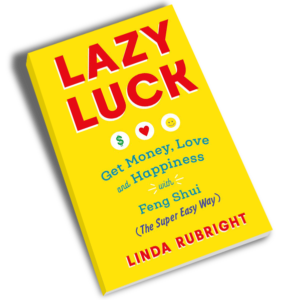I don’t easily reside in the “now”.
Like many others I do, however, recognize being in the moment, as opposed to ruminating on the past or worrying / longing for the future, isn’t – well – a half bad idea.
A meaningful life will only ever be days, years and decades comprised of meaningful moments; and, of course, to appreciate those moments you must, at minimum, be aware you are having them. (I refer to this as Woo Woo 101 or as Eckhart Tolle made famous – harnessing The Power of Now.)
While I believe we are closer to living in the “now”, we continue to be oblivious in our best moments, and diseased in our worst, in living in what I refer to as the Power of Not Now.
If we, as a society, had the slightest grasp on “maybe later”, “possibly tomorrow”, but just “not now” the average American would not be in $15,863 in credit card debt, nor would 69% of us over the age of 20 be overweight or obese.
The must have it “now” compulsion is, more often than not, resulting in regrettable and difficult situations that had we decided, “someday”, “maybe next month”, but just “not now” or lives would not only be easier, but far better. To avoid the unnecessary repercussions of must having it “now”, here are some suggestions on what works for me.
1. Only buy something if it “sparks joy.”
My buyer’s remorse happened most frequently with clothes. I would buy shirts without trying them on only to get them home and realize they are too short, too yellow or too not worth the money. (Even if it was only a little money.)
I would buy ill-fitting pants because “I would lose weight” or I would “have them altered”. Only for a few months or years down the road to toss them into the donate pile – most of the time – with the tags still on them.
Thousands, of dollars in clothing given to Goodwill later, I started to force myself to try on clothes prior to purchasing them (novel idea, no?) and then, only buying clothes I really, really dug.
Awhile ago, I finished Marie Kondo’s book, The Life-Changing Magic of Tidying Up: the Japanese Art of Decluttering and Organizing (my post on it: here). Kondo’s philosophy is to only have belongings which, when you hold them in your hand, or in my case, you stand in the dressing room looking at them, they “spark joy”.
As a result, only making purchases which “spark joy” has become my mantra. The surprise in this is not that I suddenly have a home and closets full of objects I cherish – but when I put potential purchases up to the “Does it spark joy litmus test?” I find not a lot truly does and as a result, I purchase very little.
Now I do have a relatively empty, and new (to me) house, and as such big incentive to fill it up, but what I am discovering is there is not much being sold I find truly “joyful”. And the more I think I on this subject, the more I realize there is not much being made that remotely has the intention of being joyful. (We only need to look at our cities full of soulless 1970s and 80s architecture to know this is true.)
We are not, after all, a society who focuses on the joy of what we acquire – we are a society who focuses entirely on the acquisition itself.
2. Practice admiring without acquiring
I am not anti-purchasing things. I enjoy new (or new to me) belongings probably like many people. I don’t believe self-imposed deprivation is a way to live, and I think the minimalist movement gives the impression if you have more than four shirts, a pair of pants and a unicycle for transportation you are a parasite to society. (The absurdity of all this is a topic for another day.)
What I am opposed to is money mindlessness and the inevitable, and avoidable, repercussions which accompany it. (Finances and how people handle them are in the top reasons for divorce.)
I know owning a house on the Mediterranean would spark a flood of temporary joy, but I also know the stress of maintaining it, managing it and paying for it, 8000 miles away from where I live now, would certainly, and quickly, make the purchase not only regrettable but extremely stressful. I know the same about two new cars in our driveway or a closet full of new clothes. There are countless things I could buy which would “spark joy” temporarily, but I also know those feelings more often than not move from temporary joy to long-term regret.
I think we must realize marketers do a bang up job in convincing us if we admire something (or even if we admire it a little bit or think we might admire it one day or someone might admire us more if we have it) then – we must acquire it. And I think the feelings of empowerment come from deciding, actually Mr. Very Well-Paid Marketer, I am going to decide what I want, what I spend my money on and what makes me happy – not you.
Counter intuitively, I find in many, if not most cases, not purchasing things, waiting until the time is right, until the purchase will unquestionably spark joy, until I find it at a better price – has made me feel more empowered, in control, fulfilled, confident and happy – than acquiring anything almost ever has.






